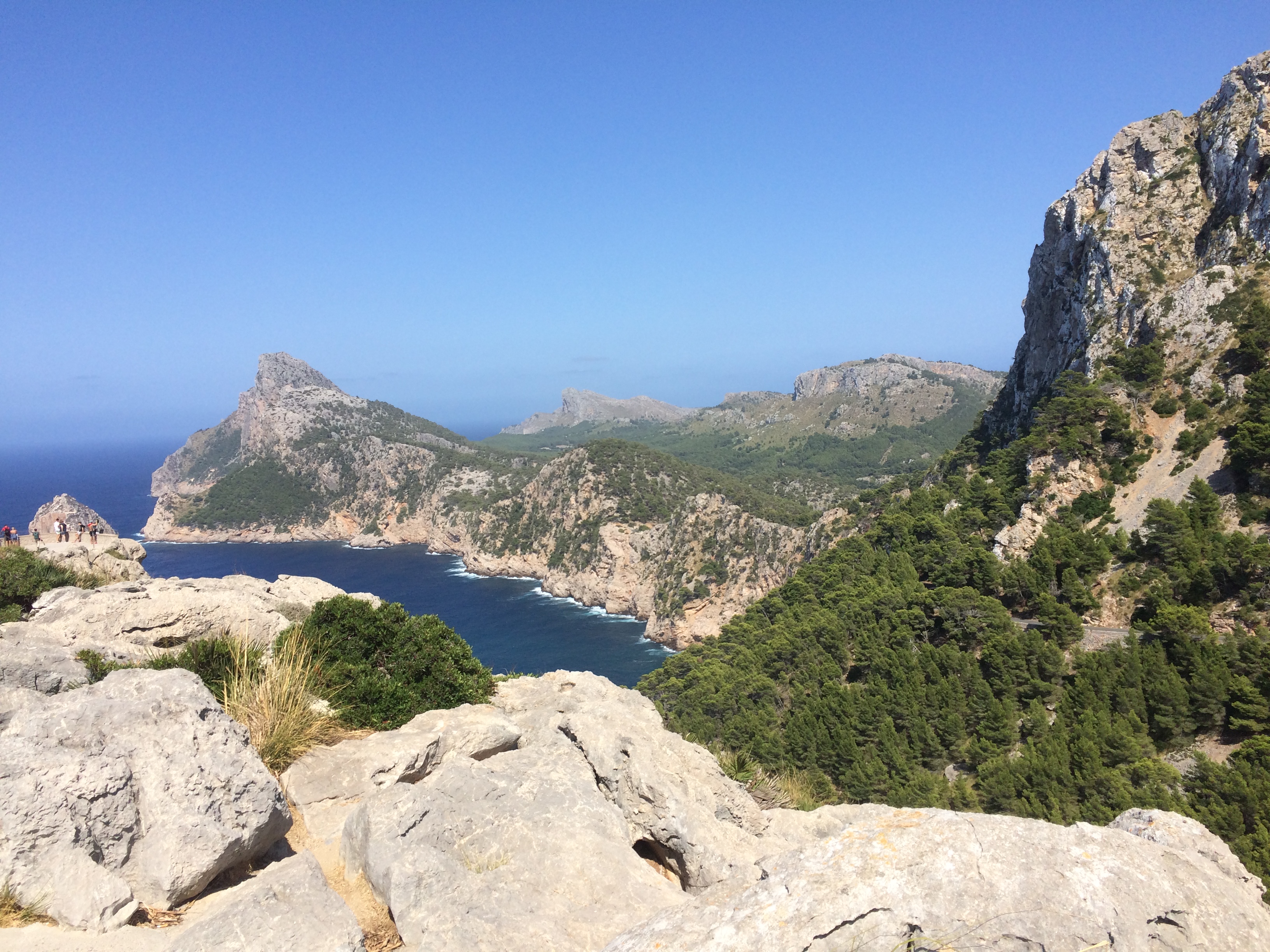The sun-washed streets of Soller at early evening cast a golden light on a town still rich in its heritage and history, a golden age town. The remarkable yellowness of the landscape, awash with rich ambers and yellows from its many citrus orchards; indeed, citrus fruits and olives were for many years the main economy for this small town and they continue to colour the land. The main square of Soller centres around the Plaça Constitució where people convene to sit in the array of cafes and bars the square has to offer and watch as the ‘orange express’ tram line which takes tourists to the nearby Port passes through the square. The rustic dark wood clad carriages which date back to the early 20th century are marked by the same orange that is reflected across the landscape and as the driver honks the horn to alert passers by of its approach a magical moment ensues and time stands still as the town stops to wait for the tram to cross the square.

Set in the heart of the Tramuntana mountain range, the town of Soller is accessible from Palma by a historic electric train, the Ferrocarril de Soller, which winds around the many mountains and valleys in the area or by local bus in around 30 minutes. Ideally, if you were choosing to stay in Soller, you would be able to drive so you can hire a small car to really wind around the mountains and absorb the breathtaking views on offer, avoiding the toll road which passes through the mountains. You can also access by car nearby villages of Fornalutx, Deia and Valldemossa.

The many orchards which line the valley of Soller make for great local fruit and wine. As service winds down for the evening and bar staff finish their shifts, I see a local man steal a moment to himself in the square, discretely sipping at a glass of the local Rose wine before cycling home. Avid cyclists are drawn to the town which borders the Tramuntana mountain range but in Soller it is the locals with their elegant town bikes in an array of pastel and vibrant colours that dominate. Winding around the neat corners, their baskets spilling with fresh bread and local grapes and the juiciest bright amber peaches. Restaurants and cafes make the most of the orchards of Soller, and the local lemon cake is popular among tourists. The restaurants in Soller are mostly Tapas-based and bookings are recommended, but the service is of a high standard. Waiting staff seem busy and agile in high season, but the joy and delight still sparkles in their eyes and the slight curvature of their grin as they pass you a menu, ‘in Spanish or English?’. I opted for the latter to their dismay. There is an overwhelming sense of hope in this small town, ambition is plentiful. Ca’n Pintxo comes highly reccomended in Soller, the restaurant strives and overachieves delivering tapas and pintxos with a modern twist, creating dishes of exquisite flavour and innovative design. A Patatas Bravas, served like american wedges piled high and dripping with roasted garlic aioli. In Soller the locals strive for gold and encourage you to do the same. Maybe it’s about time I picked up my Spanish again, who knows?
On my last day in Soller, the town seems even brighter and more golden than on first arrival, I have been inspired by the proud display of history in this town with its traditional tram line and the ambition of its locals who never seize to amaze and impress with their service and skill in the cafes and restaurants. In a moment of stillness as the last tram passes through the square and the clock chimes midnight. A lady dressed in a black dress and dancing shoes emerges from the Plaça Constitució and a partner follows, a man suited in traditional tango attire and then as the night draws in they blend together. Her black dress it’s swathes of material effortlessly blending with his pinstriped trousers as they lean against an old early 20th century lamp post steeped in time, their music playing from a small cassette player. This is a town inspired by its history that continues to strive for great brilliance. A golden age town still striving and achieving gold.
Cara Bintcliffe

